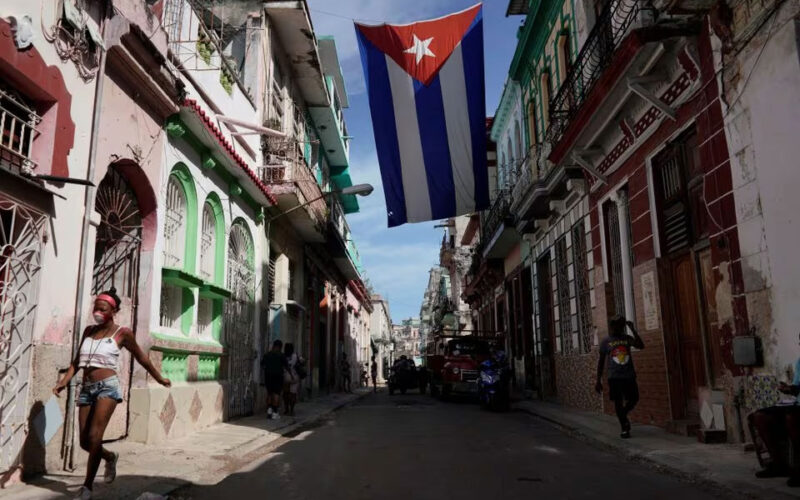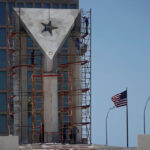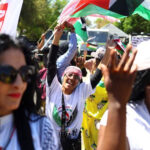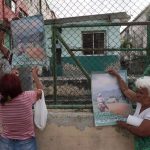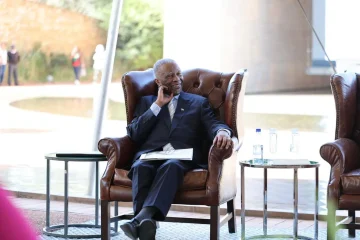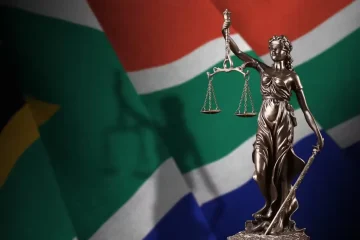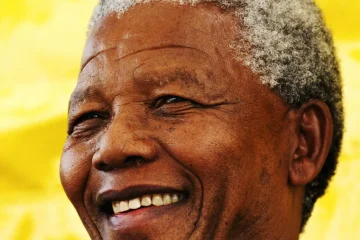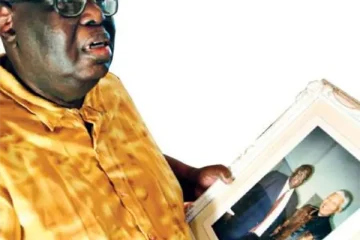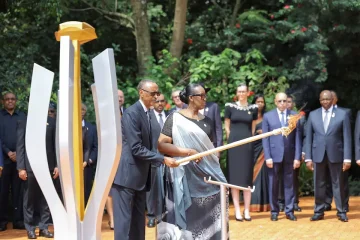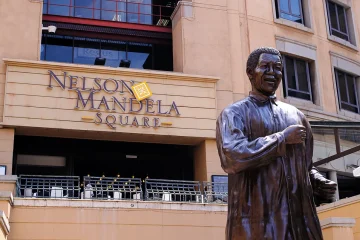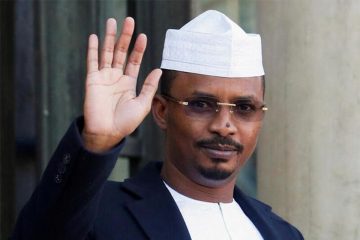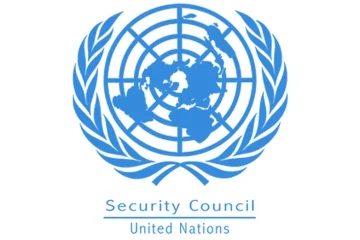SINCE 1994, South Africa has been resolute in its support for Cuba and has led the charge in international fora for the USA to bring an end to the illegal and unjust economic blockade against that island nation.
The blockade is in its 62nd year now and appears unending despite our solidarity action. South Africa has consistently voted in favour of the annual United Nations resolution calling for the end of the economic, commercial, and financial embargo imposed by the United States.
South Africa also campaigned for the release of the Cuban Five, and called on the US government to release them and lobbied international support for their release. The fact that one of the Cuban Five is with us here today is testament to the value of international solidarity. The fact that we South Africa are free today is testament to the value of international solidarity.
Today Cuba is experiencing its worst economic crisis since the 1990s. The sanctions have had a devastating impact. Cuba’s current GDP per capita is less than 10,000 dollars. The Cuban people cannot access basic food and medicine due to the tightened economic embargo imposed by America. Given that Cuba imports most of its food and does not have sufficient foreign exchange to pay for food and that fuel prices have been increasing, a serious food crisis has been the result. Cuba is also experiencing shortages of medicine, consumer goods and other needs. All this has worsened in the past foulr years. South Africa has provided assistance and recently sought to do more. Unfortunately, a court case brought by an Organisation called AfriForum paused our intention, but we do plan to provide help and are working on this.
There are important lessons we should extract from the socio-political practices of Cuba. One of the most important for us as Africa is that you should not permit oppression to force you to embrace underdevelopment.
For us as South Africa, this means while we must acknowledge and recall the history and legacy of apartheid we should not allow it to imprison us in underdevelopment. I believe the examples of Cuba’s cooperation with Africa and South Africa will illustrate the meaning of this appeal.
Cuba remains a strategic partner for South Africa in the Latin American region and in multilateral fora such as the United Nations, the Non-Aligned Movement and the Group of 77, where we continue to advance the priorities of the Global South and support the cause of those struggling for liberation and self-determination.
Our bilateral relations continue to serve as an excellent model of trusted South-South cooperation and human solidarity in the areas of health training and training and services, human settlements technical exchange, science and technology, public works technical assistance, cooperation on water resource management and water supply, and professional services in the field of basic education.
The South Africa- Cuba Health Cooperation (Mandela Castro Cooperation Agreement) is the flagship bilateral cooperation Programme. Every year hundreds of young South Africans go to Cuba to study medicine. Last year 450 South African medical students who completed their medical studies in Cuba were deployed in disadvantaged communities across our country. At the request of South Africa, 217 Cuban medical practitioners, part of the Cuban Medical Brigade were deployed throughout the country in 2020 to assist South Africa in combatting the COVID-19 pandemic. A year later South Africa nominated the Cuban Medical Brigade for the 2021 Nobel Peace Prize.
Cuba is also considered one of the leading nations in the treatment of both HIV/Aids and TB, and many of its doctors have been on the ground in South Africa treating those exact diseases since 1994. South Africa has learnt from Cuba’s successes and has worked hard to emulate its prevention programmes. In June 2015, the World Health Organisation (WHO) recognised Cuba as the first country in the world to eliminate mother-to-child transmission of HIV and syphilis as public health problems.
Cuba was also one of the first countries in Latin America to roll out HIV prevention and treatment programmes and to provide free antiretroviral therapy to all its citizens with HIV. In 2015, 92% of HIV patients in Cuba were receiving dedicated care, and the country had a network of 230 labs testing for the disease.
Cuba’s HIV infection rates are among the lowest in the world due to their health promotion and primary healthcare, and the country has even produced five generic medicines for the disease.
These important achievements of Cuba are referred to in order to indicate the wide scope of sectors viable for Africa-Cuba cooperation but most importantly to highlight the progress Cuba has worked to achieve while confronted by very difficult conditions resulting from the USA blockade. They have not been prisoners of their oppression and we should draw lessons from that.
With regard to Tuberculosis (TB), Cuba aims to be the first country in Latin America to eliminate TB according to the WHO plan, and has managed to get cases of TB down to 6.2 per 100,000 when the rest of the continent stands at 25 cases per 100,000. Cuba has also improved technologies to ensure rapid and timely diagnosis of TB. Cuba’s 451 community-based polyclinics are the main pillar of its health-care system, and its healthcare workers are familiar with local problems like a lack of water and electricity and have served the people while faced with such inadequacies.
The island of Cuba has more medical staff working in the Global South than all of the G7 countries combined. It trains excellent doctors and nurses and deploys them around the world to places where they are sorely needed. In 2014 when parts of West Africa were devastated by the Ebola virus the WHO appealed for urgent medical assistance and Cuba was the first to respond and sent 15,000 medical professionals including 461 doctors and nurses.
They were part of the Henry Reeve Brigade established in 2005 to provide emergency medical support. The irony was that the brigade was set up to assist New Orleans recover from Hurricane Katrina even though Cuba was suffering for decades under the US economic embargo. UN Secretary-General Ban Ki-Moon said in 2015, “The Cubans are always the first to arrive and the last to leave and they always remain after the crisis. Cuba has a lot to show the entire world.”
Cuba established the Latin American Medical School where students from 123 countries have graduated. Cuba has restored the sight of millions through Operation Miracle in 30 countries at no cost to patients and has administered millions of vaccinations. Despite Cuba’s invaluable contribution to health systems globally, its own population continues to suffer under the sanctions regime and struggles to get affordable medicines for its own people. It is almost impossible to import medicines from the US. Cuban ships cannot go to the US to get medicines as they need a licence from the US Treasury to import medicine which is complicated to obtain. The unfairness of denying Cuban children affordable medicines due to an antiquated and hypocritical economic blockade when Cuba has done so much for the developing world in terms of treating and saving their children is the ultimate irony.
It is not only in the area of health that Cuba has played an invaluable role, but Cuba, under the leadership of its revolutionary leader Fidel Castro, played a critical role in assisting African liberation movements to throw off the yoke of colonialism and destroy the myth of white invincibility.
From Angola to Namibia, Algeria to Guinea Bissau, it was Cuba that played a decisive role in contributing to the liberation of these African countries from colonial occupation. This has led many to ascertain that Castro was the most genuine revolutionary leader in power at the time. In the words of Castro himself, his comrades were fighting the “most beautiful cause of mankind”.
What motivated Cuba was not only its commitment to the liberation of Africans from colonial occupation and Castro’s messianic sense of mission, but the need to fight the US in the developing world. By assisting liberation movements, it was hoped that the influence of the US on the African continent would be weakened.
One of Cuba’s early forays on the African continent was when it provided assistance to the Algerian liberation movement against French colonial occupation. In 1961, a Cuban ship docked in Casablanca with weapons for the Algerian revolutionary fighters, and the ship returned to Cuba with Algerian orphans who were to be cared for in Cuba. Two years later in 1963, another Cuban ship arrived in Algeria with 55 doctors, nurses, and technicians to defend Algeria from Moroccan aggression. Later that year, 700 Cuban soldiers and 22 tanks were sent to Algeria. Algerians have never forgotten Cuba’s selfless solidarity.
In Sub-Saharan Africa, Cuban revolutionaries were sent to the Congo to support the liberation movement and later the anti-Mobutu movement. Che Guevara ultimately pulled Cuban forces out of the Congo, disillusioned by what he called the ill-discipline and corruption of Laurent Kabila’s opposition.
Much of Cuba’s focus from 1966 was on Guinea Bissau’s liberation struggle, where Cuban doctors and troops remained until the country’s independence in 1974. Ninety percent of the doctors who supported the guerrillas of Guinea Bissau were Cuban at the time. This intervention was considered Cuba’s most successful until its intervention in Angola in 1975.
The deep and special relationship between the liberation movements of Southern Africa and Cuba were cemented on the battlefields of southern Angola, where almost fifty thousand Cubans joined their destiny with that of African combatants to reject the military intervention of apartheid South Africa and to fight neo-colonialism on the continent. Ever since, South Africans and Cubans have been bonded by a noble history of freedom struggle.
On the eve of Angola’s independence, Cuban forces intervened in support of the Peoples’ Movement for the Liberation of Angola (MPLA). Following Angola’s independence, the country descended into civil war. What led to a protracted conflict was the invasion of South Africa, whose apartheid leaders saw the MPLA as a significant threat. With the real prospect that South Africa could have crushed the MPLA, Castro took a principled decision to send Cuban troops to support the MPLA.
Cuba’s ultimate success in Angola was precipitated by a major South African attack which forced the MPLA to withdraw to Cuito Cuanavale, leaving the fighters demoralised. In November 1986, Castro held an all-night meeting with his closest aides in Havana and decided Cuba would launch an offensive in the south-west to oust South African troops once and for all.
The Cuban attack on the South Africans was, according to the head of the South African task force for Cuito Cuanavale, “a blinding and deafening strike, from an enemy that is strong and clever”.
Cuba had been the decisive element in turning the tide of the Angolan war in favour of Angola’s liberation movement. The military successes against the South Africans led to the negotiations in London on June 4, 1988, between Angola, Cuba, South Africa and the US.
Reading the balance of forces, the South Africans gave up and in December 1988, accepted Cuban demands to abandon Angola and facilitate Namibian independence.
Were it not for the selfless intervention of the Cubans in southern Africa over the course of three decades, it would have taken far longer to liberate the region from colonial oppression. Nelson Mandela understood this, which is why Cuba was the first country outside the continent he visited upon his release from prison.
Throughout the past seven decades, Cubans have drawn their inspiration from their inspirational revolutionary leaders. Che Guevara said, “The life of a single human being is worth a million times more than all the property of the richest man on earth.” Cubans are also inspired by the maxim of the 19th-century revolutionary Jose Marti who said, “All of humanity is our homeland”.
It is now incumbent on progressive forces around the world to develop practical programmes of support for the people of Cuba. We need to ensure the world hears our call for Cuba to be liberated from the economic oppression of the US embargo it has suffered under. We should gather parcels of support and other means of indicating our solidarity with Cuba.
We need our activism to go beyond words of support and include projects, petitions and robust campaigns. We need to do this so that the Cuban people can prosper and live a decent life as it has strived to ensure for the rest of humankind.
- This is an edited version an address by Naledi Pandor, the Minister of International Relations and Co-operation in South Africa to the 7th African Conference Meeting of Solidarity with Cuba in Mpumalanga, South Africa.

